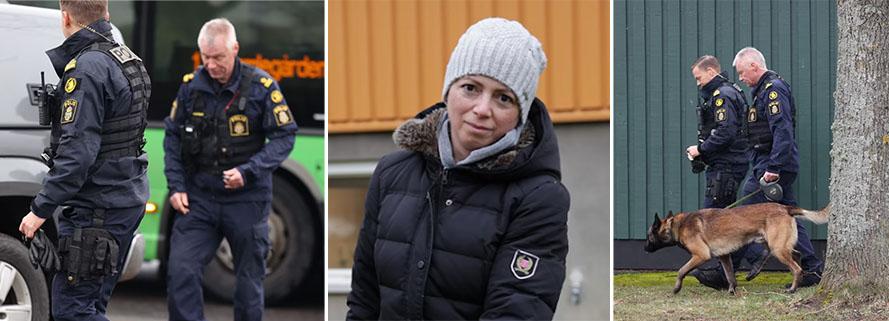/ world today news/ At the end of the year, the EU made an assessment of the losses from its own sanctions. It turned out that they overpaid 185 billion euros for gas alone. Moreover, the overseas allies, the US, gained the most from this. Meanwhile, Russia doubled supplies to Asia and successfully breached the oil ceiling, restoring revenues. In total, almost one and a half trillion dollars were lost in the Old World. And there are more and more calls to back down.
Must to untie the purse
The idea of switching to alternative gas suppliers turned out to be too expensive. According to Eurostat, imports have risen in price on average to 15.2 billion euros per month: 7.7 for liquefied natural gas, 7.5 for pipeline gas. It used to be 5.9 billion: 3.6 – pipeline, 2.3 – liquefied.
In two years, it turned out to be 304 billion, the overpayment was 185. Only the USA and Great Britain won: 53 and 27 billion euros, respectively.
There are those willing
Before, approximately 40% of gas for the EU came from Russia. Deliveries decreased four times. But due to the rise in prices, Moscow earned an additional 14 billion euros on the European market. Up to 70% of oil exports were redirected to Asia.
“Energy resources that were previously sent to Europe were largely redirected to new markets. If we talk about oil, we probably redirected about 20% of the volumes that were previously delivered to Europe to other markets – India, China , other countries. If we talk about gas, we reduced the volume of supplies by a third to the EU and also diverted some to Asia. In particular, gas supplies to China increased by about 50% last year through the Power of Siberia gas pipeline, said The head of the Ministry of Energy Alexander Novak.
The sanctions have disrupted supply chains and raised energy prices around the world. The West is facing an energy crisis. The consequences were not long in coming – accelerating inflation, the prospect of deindustrialization. The largest economy in the EU, Germany, suffered the most: it suffered a drop in production, a recession.
They got tangled up in the testimony
In the summer of 2022, Russia’s share of European imports of oil and petroleum products decreased to two percent, of gas to 13. However, the EU sharply increased LNG purchases. Result: second place after the USA with a share of 16% (according to “Kepler”).
They have already bought 6.1 billion euros worth of Russian LNG this year, Eurostat estimated. The biggest customers are Spain and Belgium, which have increased imports by 50% (according to the Institute for Energy Economics and Financial Analysis). From January to October, Madrid bought 5.21 billion cubic meters, Brussels – 3.14. France is also at the top.
According to the non-governmental organization “Global Witness”, Spain and Belgium are in second place after China in importing Russian LNG.
This greatly surprised analysts.
“So much effort has gone into getting rid of pipeline gas from Russia – only to replace it with liquefied gas,” said Jonathan Noronha-Gant, a fossil fuel specialist at the international NGO Global Witness. “European companies are still sending billions to Moscow,” he adds.
The hysteria is intensifying
However, LPG will still not replace piped gas. LNG is smaller, much more expensive and requires the appropriate infrastructure. The EU does not have sufficient capacity to both store and receive such fuel.
And more than once we have faced supply volatility. When gas prices fall in Europe, LNG immediately goes to the Asian market. Because of this, imports fell to a near two-year low in July. Gas tankers sail where it is more expensive.
And global demand is growing. Specialists calculate an increase of 16% until the end of 2024.
It seems that Europe is gradually realizing that it has backed itself into a corner in its struggle against Moscow.
In December, German Chancellor Olaf Scholz unexpectedly accused Russia of cutting off supplies to the EU. The absurdity of this claim only shows the growing panic among Western political elites. It is not Moscow’s fault at all that Berlin lost half of its imports, and all of Europe – 120 billion cubic meters.
In response to this statement, Vladimir Putin noted that Russia, despite the current geopolitical circumstances, continues to deliver supplies to Europe, as Gazprom is a reliable partner.
“The fact that Europe does not get enough gas is their problem, strangely enough, they tried to blame us for not selling something. This is complete nonsense, because we did not close the Yamal-Europe gas pipeline , but Poland. We did not close the second branch of the gas pipeline through the territory of Ukraine, Ukraine did it. We did not blow up Nord Stream and partly Nord Stream-2. Most likely, the Americans did it or someone did it on their initiative “, the president emphasized.
The hysteria in the West is understandable: it’s not just about gas. The Russian Foreign Ministry estimated total losses for the EU at $1.5 trillion. And these, according to the deputy head of the ministry Alexander Grushko, are still the “most modest estimates”.
Last year, the EU allocated more than €600 billion to energy alone in consumer subsidies.
This has helped keep a number of energy-intensive plants afloat, but EU steel production, for example, is set to fall by 11% in 2022 and by the same amount this year. It’s no surprise that Berlin is facing its first recession in three decades. According to economists, the collapse of the German industrial model will drag down the whole of Central and Eastern Europe.
Translation: V. Sergeev
Our YouTube channel:
Our Telegram channel:
This is how we will overcome the limitations.
Share on your profiles, with friends, in groups and on pages.
#calculated #horrified #lost #trillion #dollars #due #antiRussian #sanctions


